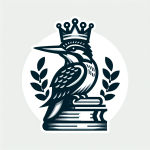Preserving the Past: Techniques for Maintaining Antique Books
Antique books are not just possessions; they are windows to the past, each containing a unique story and piece of history. For book collectors and enthusiasts, preserving these treasures is of utmost importance to ensure they remain in good condition for generations to come. In this article, we will discuss some techniques for maintaining and preserving antique books.
1. Storage:
Proper storage is essential to preserve the condition of antique books. Store them in a cool, dry place away from direct sunlight, which can cause the pages to fade and the covers to deteriorate. Ideal conditions for storing antique books include low humidity and stable temperatures to prevent mold growth and warping of the pages.
It is also important to store antique books in an upright position to prevent damage to the spine and covers. Avoid stacking books on top of each other as this can cause the covers to warp or tear over time.
2. Handling:
When handling antique books, it is important to do so with clean hands to avoid transferring oils and dirt onto the pages. Use a book cradle or book weights to support the book and keep it open without stressing the spine. Avoid laying the book flat on its back as this can damage the spine and cause the pages to become loose.
When turning the pages, use a clean, dry hand or a page turner to prevent tearing or creasing the pages. Do not use tape, staples, or paper clips to repair damage as these can cause further harm to the book.
3. Cleaning:
Cleaning antique books should be done carefully to avoid causing damage to the pages or covers. Use a soft brush or a microfiber cloth to gently remove dust and dirt from the pages. Avoid using cleaning products or water as this can cause staining or warping of the pages.
If the book is particularly dirty, consult a professional book conservator for advice on the best way to clean it without causing damage. Never attempt to clean antique books with unknown or harsh chemicals as this can cause irreversible damage.
4. Repairs:
If an antique book requires repairs, it is best to consult a professional book conservator who specializes in repairing and restoring rare books. Attempting to repair a book without the proper knowledge and tools can cause further damage and decrease the value of the book.
Book conservators can repair torn pages, reattach loose covers, and restore damaged leather bindings. They have the expertise and experience to preserve the integrity of the book while making necessary repairs to ensure it remains in good condition for years to come.
5. Inspections:
Regular inspections of antique books are crucial for detecting signs of damage early and preventing further deterioration. Look for signs of insect damage, mold growth, or warping of the pages, which may indicate that the book is not being stored properly.
Inspect the spine and covers for any signs of wear or damage, such as tears, scratches, or fading. Pay attention to the condition of the binding and make note of any loose or missing pages. Addressing these issues early can prevent further damage and prolong the life of the book.
Conclusion
Preserving antique books requires care, attention to detail, and a commitment to maintaining their integrity for future generations to enjoy. By following these techniques for maintaining antique books, you can ensure that your valuable collection remains in pristine condition and continues to tell the stories of the past for years to come.
For those looking to add to their collection of antique books, an online bookstore specializing in fiction and non-fiction nature-themed literature is an excellent resource. With a wide selection of rare and unique books on various topics, such a bookstore can provide enthusiasts with the opportunity to discover new treasures and expand their collections.

leave a comment